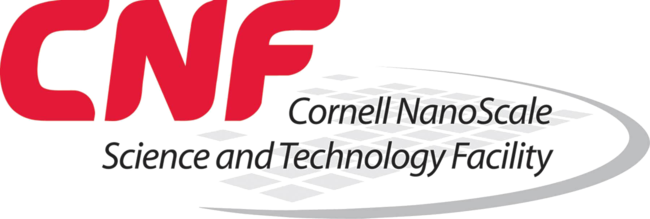Since the establishment of CNF in 1977, Cornell University has been providing nanoscale electronics education to its students. Initially offered only at the graduate level, the current course is now also available to undergraduates as well. This Nanofabrication class is an introductory experience for students, aiming to demystify nanoscience and related technologies.
The lecture portion of the course is titled, ECE4360/MSE5411 Nanofabrication and Characterization of Electronics and covers a wide array of topics including thin film deposition, wet and dry etching, lithography, and other critical aspects of micro and nanofabrication such as how to characterize fabricated devices. Its accompanying lab course, ECE 4361/MSE 5411 Nanofabrication and Characterization of Electronic Laboratory, is offered in both the fall and spring semesters. The class focuses on electrical and computer engineering, chemical engineering, biomedical engineering, food science, and even fashion and design.
While lectures delve into the theoretical foundations and technological principles, the lab component allows students to put these theories into practice. Students engage in hands-on experimentation in yellow light rooms to perform lithography, deposition and etching of metals and dielectrics, annealing processes to control placements of atoms and achieve desired properties, and other nanofabrication techniques.
Thanks to generous financial support from the Dean of Engineering, students now have access to almost any tool in the CNF lab, facilitating the incorporation of four 3-hour lab sections each week. A CNF staff member, also supported by Dean Archer, is dedicated to help instruct the lab components that take place inside the CNF.
"Nanoscience, like cooking science, involves breaking down complex structures to reveal molecular changes. Just as chopping onions enhances flavor, teaching nanoscience and technologies integrates fundamental theories into practical applications, making it more accessible to learners navigating its complexities."
-Professor Grace Xing on the impact of learning nanoscience and technologies at a graduate level.
The course offered at CNF plays a crucial role in preparing future professionals in nanoscience and technology for diverse career paths, spanning industry, academia, public services, non-governmental organizations (NGOs), and government sectors. As a rapidly expanding field on a global scale, nanotechnology demands a well-trained workforce, a need that CNF is committed to fulfilling.


